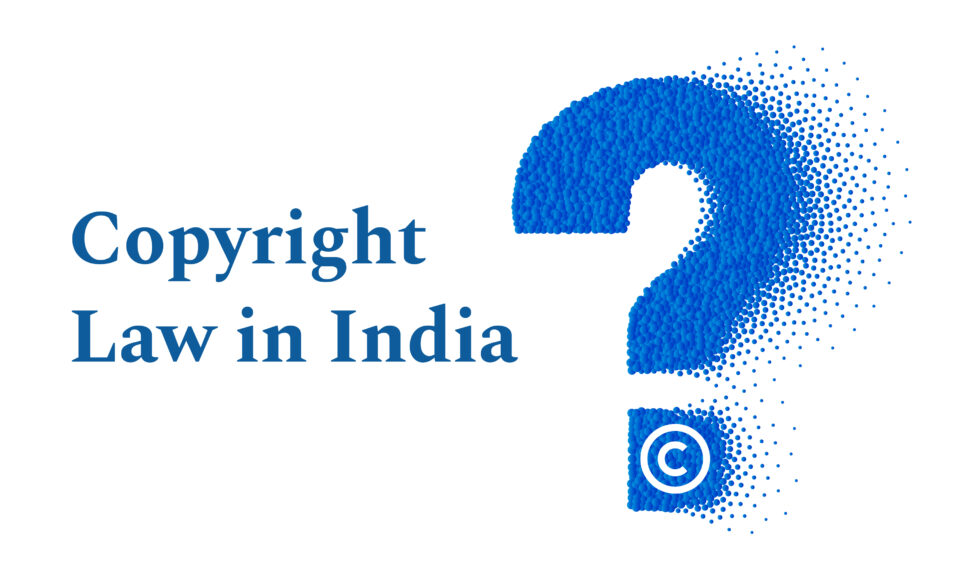Every year on April 23rd, the world celebrates World Book and Copyright Day. This day recognises the power of books, creativity, and the importance of copyright in fostering a vibrant cultural landscape. In India, a nation known for its rich literary and artistic heritage, understanding copyright law is crucial for both creators and consumers.
What is copyright?
Copyright is a legal right granted to the creators of original works, such as literary, musical, dramatic, artistic, and cinematographic works. It protects the expression of ideas, not the ideas themselves. The Copyright Act, 1957, governs copyright law in India.
What does copyright protect?
Copyright protects various types of creative expressions, including:
- Literary works: books, poems, articles, scripts, song lyrics, etc.
- Musical works: compositions, lyrics, etc.
- Dramatic works: plays, screenplays, etc.
- Artistic works: paintings, sculptures, photographs, films, etc.
- Cinematographic films and sound recordings.
Rights Granted by Copyright
Copyright grants creators a bundle of exclusive rights, including:
- Reproduction Right: The right to control the copying of the work in any form.
- Adaptation Right: The right to create derivative works based on the original work.
- Publication Right: The right to first publish the work.
- Performance Right: The right to perform the work publicly (e.g., plays, musical compositions).
- Broadcasting Right: The right to transmit the work through radio, television, etc.
- Translation Right: The right to translate the work into another language.
Copyright Ownership
Copyright generally vests with the creator of the work. In the case of employee-created works, the copyright belongs to the employer unless there’s a written agreement stating otherwise.
Copyright Registration
Copyright registration is not mandatory in India; however, it is highly recommended. It strengthens your claim to ownership and serves as prima facie evidence in court in cases of infringement. Registration also facilitates faster remedies in cases of infringement. The Copyright Office, established under the Act, is responsible for handling registrations.
Copyright Infringement
Copyright infringement occurs when someone, without the copyright owner’s permission, does something that only the copyright owner has the exclusive right to do. This could include copying, adapting, publishing, performing, or broadcasting the work.
Landmark Copyright Cases in India
Indian courts have played a crucial role in shaping copyright jurisprudence. Here are some key cases:
- Rupa Publications (India) Pvt. Ltd. vs. IBH Prakashan Pvt. Ltd. (2003): This case established the test for originality in literary works. The Supreme Court held that even a slight amount of labour and skill invested in creating a work can attract copyright protection. This case helped clarify the low threshold for originality required under Indian copyright law.
- Cadila Healthcare Ltd. vs. Mayfair Remedies Pvt. Ltd. (2001): This case clarified the distinction between copyright and trademarks. The Court held that copyright protects the expression of ideas, while trademarks protect the source of the goods. This distinction is essential for creators to understand the scope of protection offered by copyright law.
- MV Dr. Bhupen Hazarika vs. Anand Publications (2001): This case recognised the moral rights of creators. The Court held that authors have the right to claim authorship and object to any distortion or mutilation of their work that could harm their reputation. This case highlighted the importance of protecting the non-economic aspects of authorship alongside the economic rights.
Exceptions to Copyright Infringement
There are certain exceptions to copyright infringement, such as:
- Fair Use: limited use of copyrighted material for purposes like criticism, commentary, research, or education. The four factors considered for fair use are:
- The purpose and character of the use
- The nature of the copyrighted work
- The amount and substantiality of the portion used in relation to the whole copyrighted work
- The effect of the use upon the potential market for or value of the copyrighted work
- Public Domain: Works whose copyright term has expired or were never protected by copyright fall into the public domain and can be freely used.
Copyright Term
The duration of copyright protection varies depending on the type of work. Literary, dramatic, musical, and artistic works are generally protected for the lifetime of the author and 60 years after their death. Cinematographic films and sound recordings are protected for 60 years from their creation.
International Copyright
India is a signatory to several international copyright treaties, such as the Berne Convention for the Protection of Literary and Artistic Works. This ensures reciprocal protection for Indian creators’ works in other member countries.
Conclusion
Understanding copyright law empowers creators to protect their original works and ensures they are fairly compensated for their creativity. It also provides consumers with a clear framework for accessing and using copyrighted material. World Book and Copyright Day serves as a reminder of the importance of balancing fostering creativity and ensuring access to knowledge. By respecting copyright laws, we can cultivate a vibrant cultural ecosystem that benefits both creators and consumers.

